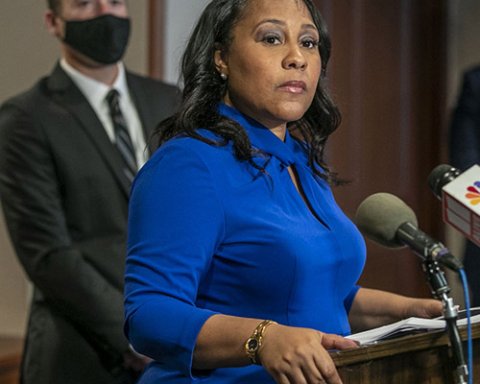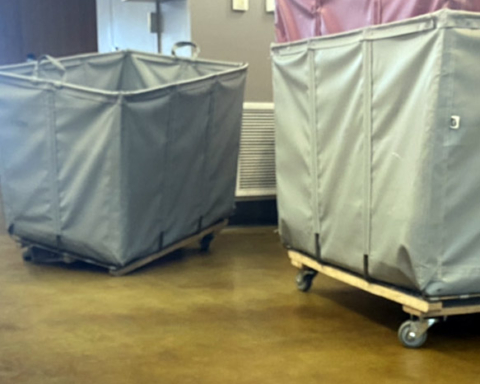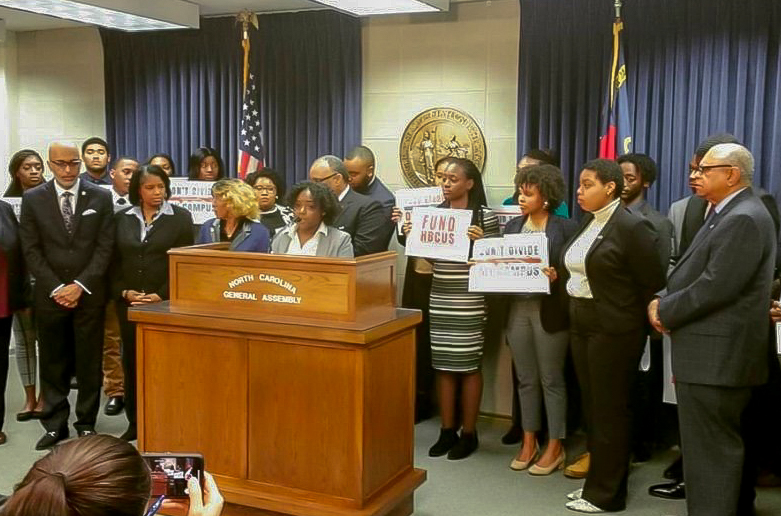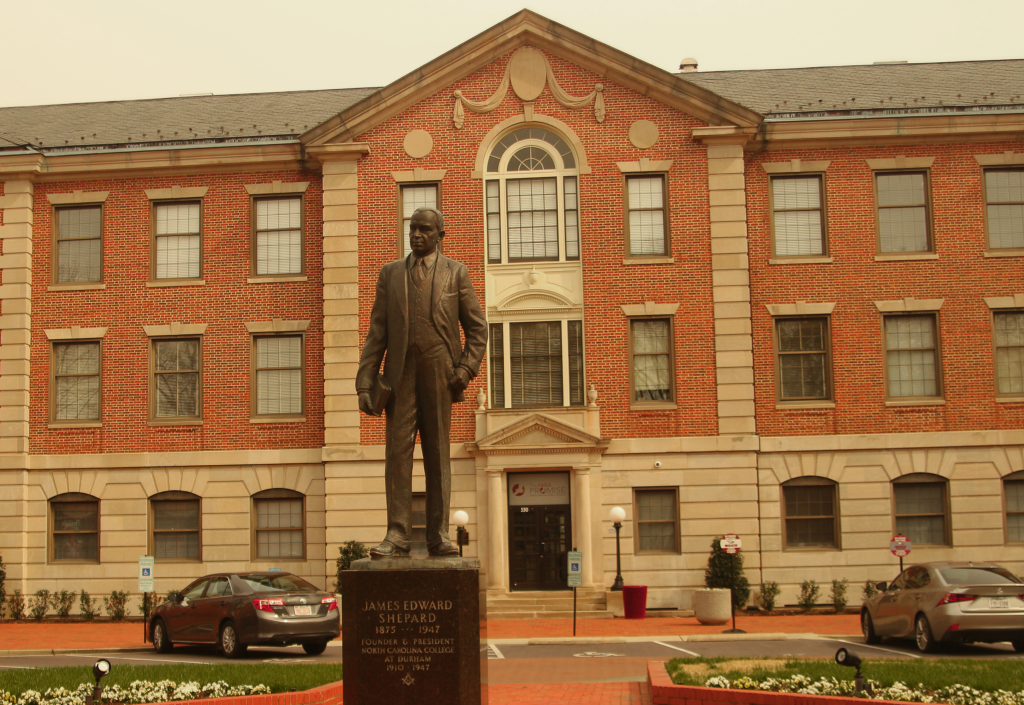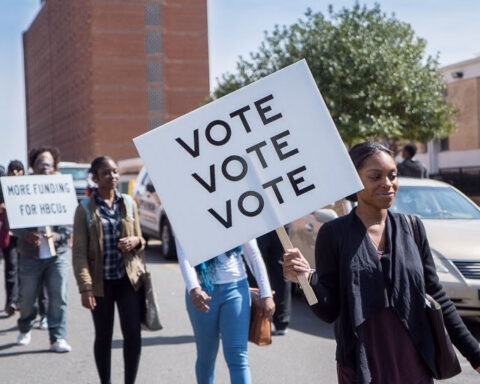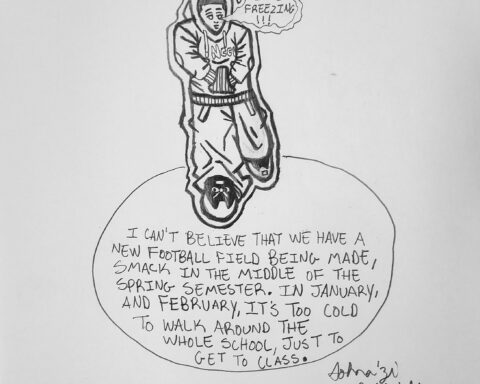The name change of the Hoey (now Shepard) Administration Building at N.C. Central University must be understood in the context of the broader movement against white supremacy in Durham and Chapel Hill. It also must be understood as a bottom-up, student-led victory — not a top-down administrative success.
The campaign to change the building’s name emerged after the August 2017 removal of the Confederate statue in front of the Durham County Courthouse.
Fellow NCCU student-activist Takiyah Thompson played an important role in taking down of the racist statue. Subsequently, NCCU students began to not only strategize on ways to best support Takiyah, but we also began to ask questions about how white supremacy impacts our very own campus.
For years, only a small number of people at NCCU knew that a building on campus was named after a white supremacist, including myself. In the process of trying to get students to feel connected to the struggle against white supremacy, a couple of things emerged.
I’d heard that Clyde R. Hoey, governor of North Carolina from 1939-41, was a segregationist, but I didn’t have the evidence to prove it. With the help of university archives coordinator Andre Vann, I found that several of Hoey’s speeches advocated for segregation and white domination. From there, I pitched the idea of a petition to a group of students who were eager to take action for a name change. That led to an on-campus town hall meeting on white supremacy organized by the Black Youth Project 100 (BYP100), and then the Change.org petition: “The NCCU community refuses to celebrate a white segregationist.”
Since the official launch of the petition and campaign, it received a significant amount of support from the student body, including their president, senior Michael Hopkins.
“Now that I know the truth I can’t sit idly by while a prominent building on the campus of my HBCU glorifies the legacy of a white supremacist,” Hopkins wrote on the petition page as his reason for signing.
In addition to his support for the petition and making the issue known across his social media channels, Hopkins meet with fellow senior Glenda Spell and I to take the struggle for a name change to NCCU’s Board of Trustees. Without him, this victory would not have been possible.
This victory further solidifies two major issues: ensuring that the Student Government Association should and must be acting in the best interest of the student body they represent and continuing the long tradition of NCCU students having advocated for a name change of the administration building as early as the 1970s. Our recent efforts are important in their success, but we would be remiss to ignore the campus organizers of our past.
A big thank you must be given to NCCU’s history department, our Board of Trustees, and our aforementioned previous and current SGA student body presidents Michael Hopkins and Davanta Parker. Those thank-yous also personally extend to Drs. Jerry Gershenhorn and Jarvis Hall and NCCU law professor Irving Joyner. Now that the name change has taken place, we can truly began to fulfill our mission of truth and service. We are in a political crisis and our university must lead the way and contribute to the struggle for Black freedom.
Ajamu Dillahunt is a history and political science senior at NCCU. He is also a member of Black Workers for Justice (BWFJ) and the Black Youth Project 100 (BYP100), as well as a former intern with the SNCC Digital Gateway Project.


